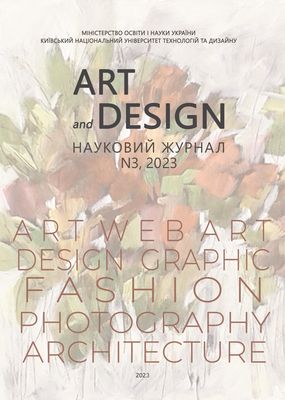IMPACT OF DIGITAL ART ON DESIGN OF ONLINE MUSEUM: USER-CENTERED DESIGN, NARRATIVE DESIGN, AND INTEGRATION OF TECHNOLOGY
DOI:
https://doi.org/10.30857/2617-0272.2023.3.8Keywords:
digital art, online museum, exhibition design, augmented reality, virtual reality, mixed reality, Chinese cultureAbstract
This research aims to explore the means by which digital art presented in online museum exhibitions will contribute to an improved visitor experience of the museum exhibition. Theoretical and practical research methods are used, namely, analysis of scientific and professional literature on the impact of digital culture on museum exhibits, analysis of design analogs of online museums. Based on the research analysis, the influence of digital culture on art museums was established, which allowed them to go beyond physical spaces, display digital art and implement virtual reality technologies. The cases of the Museum of Modern Art, TATE, the Victoria and Albert Museum, as well as China's Palace Museum and Shaanxi History Museum have demonstrated the significant benefits of integrating digital culture into the art world. The use of augmented reality (AR), virtual reality (VR) and mixed reality (MR) in digital museum exhibitions was analyzed. It is substantiated that the impact of digital culture on art museums is evidence of the importance of digital technologies in the design of online museums. The scientific novelty lies in the fact that the design principles of digital art exhibitions of online museums have been further developed in the work, which allows them to reach a wider audience of visitors and improve the aesthetic perception of museum expositions by viewers. The results of the study can be used in their introduction into the modern practice of designing museum.

